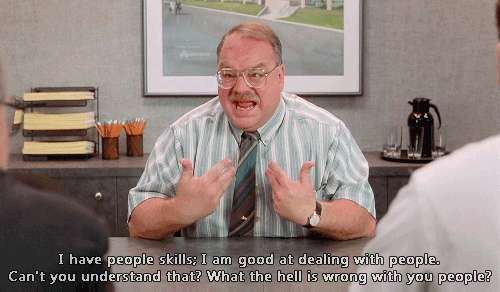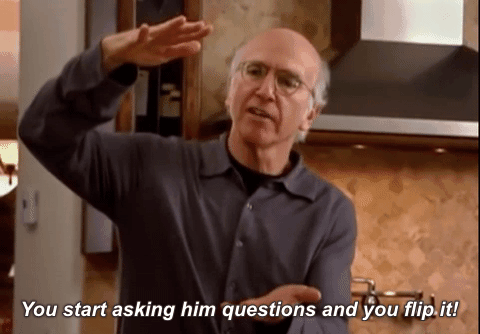How to be interview ready
Overwhelmed with the prospect of having to prepare for an interview? As daunting as it seems interviewing is a skill where preparation warrants success. Fortunately, like any skill it’s something you can master and the preparation is not terribly difficult! There are a number of steps you can take before the interview to ensure that you make a great impression. Here’s how you can outshine the competition with a little interview prep and ensure success!
Do your research
Read and understand how the company works, what their services are, what makes them stand out and what they’re up to. To attain this information, scour the company website, articles on news and recent events about the company, their blog, social media platforms and get a taste of the culture. It’s important to know the company’s strengths, its community reach, its competitors and how it’s doing in its field. Know the key players of the organization and familiar with their services, clients and products.
Align the job description key qualities to yourself
Read the skills and experience required by applicants in the job section that the company values. This will help put you on the same wavelength as the company’s employer. Begin by putting together an outline of your own qualifications, experience and skills that can match the characteristics and skills the company is looking for. Culturally, every company is different, especially when it comes to startups. Lining up key qualities can allow you to determine whether you are a good fit for the job and whether the company and the listed role is a good fit for you.
 LinkedIn your interviewer
LinkedIn your interviewer
Looking at an interviewer's LinkedIn is a necessity before an interview to understand more about who you are speaking with. It gives you a glimpse as well of the company they are working for. It also helps that the interviewer might see that you have been looking into them on the 'who's viewed your profile' section of their profile, which works in your favor demonstrating your research skills before the interview.
While looking them up, see how long they’ve been at the company and try to find commonalities and shared interests to become comfortable with the interviewing individual. A sense of familiarity also helps with pre-interview jitters, humanizing the interviewer, who probably went through the same process you’ll be facing at the interview. Understanding your interviewer professional breadth can be used to steer the conversation in a beneficial direction professionally & tactfully.
break-v1
Prepare 5 questions
As the interview comes to a close, one of the final questions you may be asked is "What can I answer for you?" Having questions prepared is a chance to show off your own research. It’s your opportunity to shift balance onto them and also figure out whether the company is for you. Not having any questions can make the candidate seem unprepared or disinterested. It’s important to stray away from too many generic questions like the progression of your role and ask questions pertaining to the company and the way it functions and what sets it apart from its competitors. Asking the right questions will make the interviewer take notice and set you apart showing that you have thought about the company holistically and willing to think critically and provide more efficient solutions in the role.
 Try a mock interview with a friend
Try a mock interview with a friend
Mock interviews are a conversational exercise that imitates the real interview as similarly as possible. It provides experience for the candidate, and helps reduce stress and anxiety. Going through the questions provides confidence knowing what questions to expect and allows for constructive feedback in areas that you might not be aware you need to improve upon.
Map & schedule out travel plans the day before
Plan out your journey. This step is often overlooked but timeliness is a trait that makes or breaks your viability in an interview. If your particularly nervous or unacquainted with the area do a trial run before if need be. The trial run will provide some reassurance to knowing the location and getting acquainted with the setting of the interview. No time for a trial run? Plan out the journey on Google Maps or CityMapper. Look at how long it will take you to make the journey and add on an extra block of time to account for transportation delays. Look into alternate routes just in case and schedule out your time according to the commute and time it takes to getting ready.
Prepare an outfit the night before
Depending on the culture and job, figure out what to wear. If the interview is at a more corporate setting a suit or dress clothes might be more appropriate compared to a creative setting with a smart casual dress code. Make sure the interview outfit is comfortable. An interview is often nerve-wracking as it is, wearing comfortable clothes that align with the company’s culture will allow you to feel comfortable and make a good impression.
Prepare what to bring
Copies of your CV are essential. The interviewer will have multiple candidates and quite often don’t have a paper copy of your CV during the interview. Carrying some with you shows preparation. It’s also beneficial for them to have a document with your name that illustrates your experience as a reminder during the hiring process. If you’re a creative don’t forget your portfolios as this is an extension of your CV. Notes and notepads are also a good bet and demonstrates preparation for the interview.
Schedule in sleep the night before
There’s nothing worse than walking into an interview like a sleepless zombie. Schedule in sleep time so that the morning of you are at your best and full of energy for the interview.
BrighterBox connects the fastest-growing companies with the brightest graduates.
Graduate Jobs



